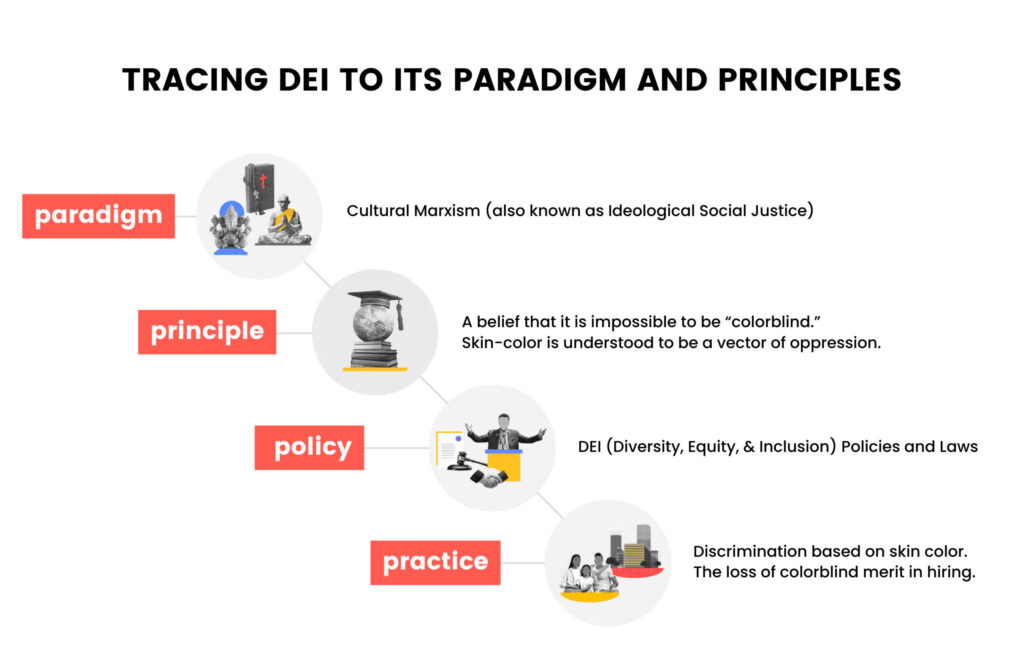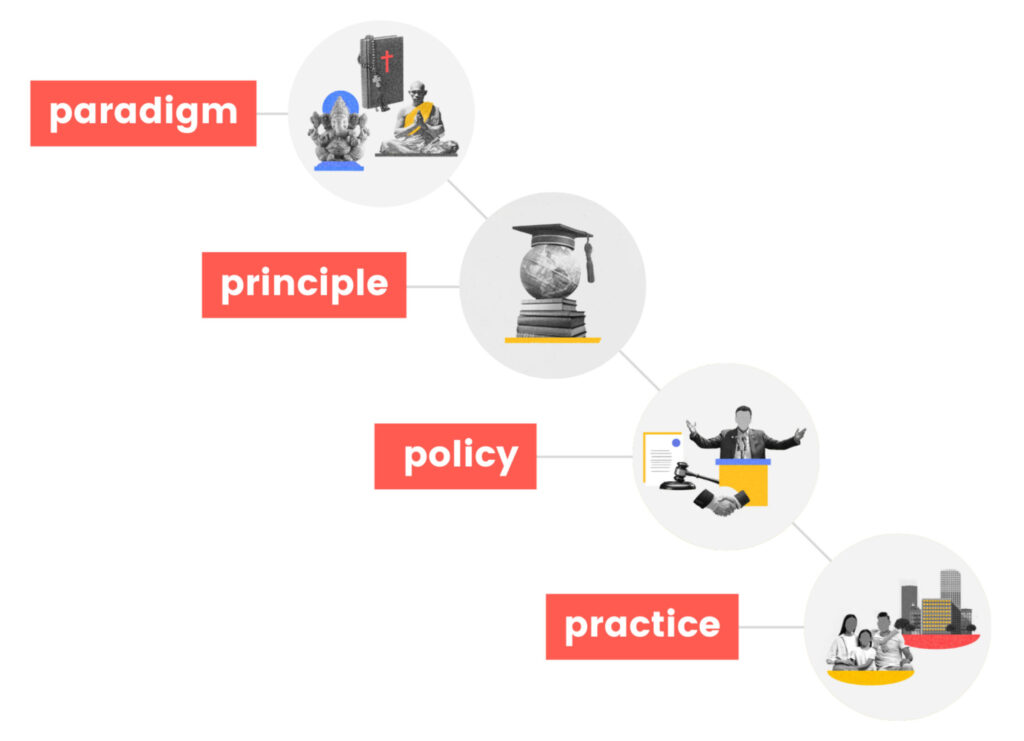August Forum in Panama
Currently at the Disciple Nations Alliance office, we are talking about how to best shape the program content for the next DNA Forum to be held in Panama on August 4 – 8, 2025. The focus will be on the role of the local church in discipling the nation. We hope you can join us! Details are coming next month.

Worldview Reflections on DEI (Diversity, Equity, & Inclusion)
Scott recently shared a helpful reflection with our office team in response to an article, “Trump Abolishes DEI for the Feds” by Christopher F. Rufo. The article sees Trump’s decision to terminate all DEI programs in a positive light and considers how such a cultural shift was able to happen. Scott says the article is focused too much at the level of policy and would be greatly strengthened by including analysis and reflection on worldview, paradigm, and principles. Perhaps Scott’s feedback can help you consider how to analyze issues happening in your area.
Dear DNA Team,
As I read this article, I thought about the way Darrow Miller often analyzes things through the lens of (a) paradigm/worldview, (b) principles, (c) policies, and (d) programs/practices.
Right now, everyone is talking about President Trump’s policies of terminating DEI.
This change in policy will happen in the realm of Human Resource Departments, boards of directors, and a whole army of “professionals” who have carried out the DEI paradigm in educational, business, corporate, and government institutions.
The DEI way of doing things is aimed at equality of outcome in leadership, hiring, student selection, etc. In essence, it picked people for advancement based on categories of perceived historic oppression (i.e., people of color, women, LGBTQ, or ideally some combination of these). DEI was the opposite of policies rooted in the principle of color-blind, merit-based selection.
DEI policies grew out of a comprehensive worldview, which I call ideological social justice (or Cultural Marxism). I laid out the broad contours of this worldview in the diagram I put in the Why Social Justice Is Not Biblical Justice book. That worldview gives rise to principles, followed by policies and, eventually, practices.

The article by Rufo didn’t talk about paradigm or principles. Here was the one exception: “The polling data indicated that Americans supported a ‘colorblind society’ over a ‘race-conscious society’ by large margins.” When he brings up colorblind or race-conscious, he is talking at the level of principle, but still not yet paradigm.
Here’s what I think is happening in the current rejection of DEI policies.
The vast majority of Americans simply do not see the world through the lens of Cultural Marxism or support the principles/policies/practices that flow from it.
The DEI revolution was an attempt by powerful elites to force something on the American people. They attempted to establish a new governing worldview rooted in Cultural Marxism by forcing it at the policy level, which they did quite successfully over the past five to ten years. They forced it into institutions, particularly educational institutions, and then everywhere else. They used guilt manipulation, false compassion, fear, censorship, and other power tactics. It worked in part for a while, but because there was never significant buy-in at the paradigm level, it was like a house built on an unstable foundation. It wasn’t going to work.
Rufo has been successful in his fight against DEI at the policy level. Still, I think he would be even better off to always tie the policies back to the principles and the principles to the paradigm so people could see the “whole” and how it all connects.
The new openness to Christianity among many elites in media, education, etc., is because they sense something is not right (paradigm level). Yet, their rejection tends to be at the policy and practice level. They reject DEI, censorship, men in women’s sports, LGBTQ books/curriculum in public schools, and transgender surgeries – especially for children.
But because many have been secular progressives, the question then arises: If we tear this all down, what will replace it to support the principles and policies we deeply believe and support, such as individual freedoms of speech, religion, etc.? Some are discovering that the Bible is what has built and supports these principles, policies, and practices.
Thus they are looking at the Bible and Christianity with “fresh” eyes. This is an incredibly exciting opportunity—a window of opportunity for the church. The church is ill-prepared for this, however, because so many believers still don’t think in terms of worldview, and they have little interest in cultural change.
For DNA, we must keep helping people think deeply, helping them connect the more surface levels of practice and policy to the deeper foundational levels of principle and paradigm. These drive everything. A successful strategy of change has to focus on every aspect. The author is focused on policy. Good for him. But it would be a more substantial and more lasting change if he connected all four.
Scott
If we are going to see any real change in an individual or society, we must deal with the root of paradigms, worldviews, and principles.
To explore these ideas further:
- Check out the recent podcast on “Justice” on Apple, Spotify, or Buzzsprouts.
- Join us at the August Forum in Panama






2 Responses
I have been following this issue closely and read about 10 books on this issue including Christopher Rufo.
Just got back from a missions trip to Costa Rica so I can’t go to the conference. I love the flow of the paradigm,principle,etc. It is spot on. If we don’t attack the root, we will never eliminate the ideology. That is what your typical Republican, or typical church going Christian does not realize. I moved tom the buckle of the Bible belt to escape Wokism and 98 % of them don’t get it! I love you organization.
I believe 1 WEAPON that can be used is to engage people over what did Martin Luther King Dream of? Which was of course Colorblind Meritocracy . We need to drive this home! The culture is confused over the defintion of racism . Maybe this is Scott’s 11th WORD:Racism.
En los últimos años se avanzó de manera positiva y significativa en el aprendizaje de la cosmovisión bíblica y su influencia en todas las áreas de la sociedad , aprendimos la importancia de la iglesia y su impacto fuera de las 4 paredes del templo, y esté es un gran momento para impulsar de manera exponencial el trabajo realizado.
Es vital entonces presentar
los ejes centrales para avanzar en el Mandato
Cultural .
Tenemos la cuenta regresiva hasta finales del 2028 para producir un impacto profundo y contundente en el avance del Reino de Dios en esta generación y dejar un gran fundamento para las nuevas generaciones.